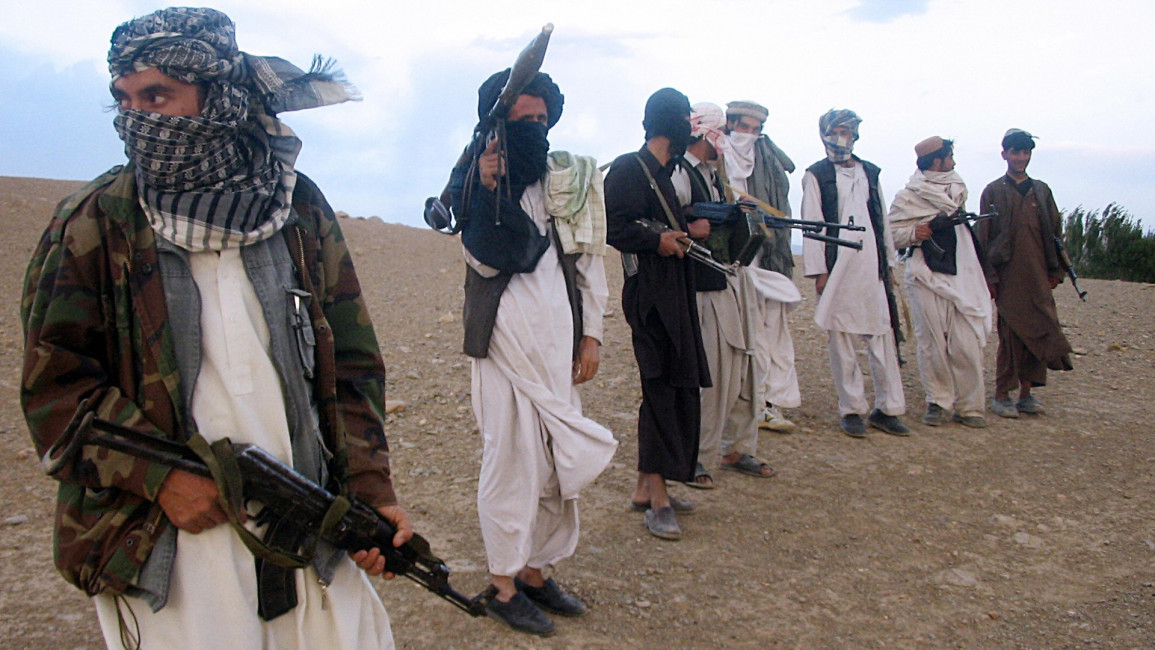Another Afghan provincial capital, Taloqan, falls to Taliban: security source
The Taliban captured Taloqan city in northeastern Takhar province on Sunday, a security source and residents told AFP, the third provincial capital to fall to the insurgents in one day.
"We retreated from the city this afternoon, after the government failed to send help," the security source said. "The city is unfortunately fully in Taliban hands."
Meanwhile, a resident of the city said: "We saw the security forces and officials leaving the city in convoys of vehicles."
The insurgents have snatched up five provincial capitals in Afghanistan since Friday in a lightning offensive that appears to have overwhelmed government forces.
Kunduz, Sar-e-Pul and Taloqan in the north fell within hours of each other on Sunday, lawmakers, security sources and residents in the cities confirmed.
In Kunduz, one resident described the city as being enveloped in "total chaos".
"After some fierce fighting, the mujahideen, with the grace of God, captured the capital of Kunduz," the Taliban said in a statement Sunday afternoon.
"The mujahideen also captured Sar-e-Pul city, the government buildings and all the installations there."
The insurgents said on Twitter on Sunday evening that they had also taken Taloqan, the capital of Takhar province.
Parwina Azimi, a women's rights activist in Sar-e-Pul, told AFP by phone that government officials and the remaining forces had retreated to an army barracks about three kilometres (two miles) from the city.
The Taliban had the compound "surrounded", said Mohammad Hussein Mujahidzada, a member of the provincial council.
Perennial target
Kunduz is the most significant Taliban gain since the insurgents launched an offensive in May as foreign forces began the final stages of their withdrawal.
It has been a perennial target for the Taliban, who briefly overran the city in 2015 and again in 2016 but never managed to hold it for long.
The ministry of defence said government forces were fighting to retake key installations.
"The commando forces have launched a clearing operation. Some areas, including the national radio and TV buildings, have been cleared of the terrorist Taliban," it said.
Spokesman Mirwais Stanikzai said later that reinforcements including special forces had been deployed to Sar-e-Pul and Sheberghan.
"These cities that the Taliban want to capture will soon become their graveyards," he added.
Kabul's ability to hold the north may prove crucial to the government's long-term survival.
Northern Afghanistan has long been considered an anti-Taliban stronghold that saw some of the stiffest resistance to militant rule in the 1990s.
The region remains home to several militias and is also a fertile recruiting ground for the country's armed forces.
"The capture of Kunduz is quite significant because it will free up a large number of Taliban forces who might then be mobilised in other parts of the north," said Ibraheem Thurial, a consultant for International Crisis Group.
Vivid footage of the fighting was posted on social media over the weekend, including what appeared to be large numbers of prisoners being freed from jails in captured cities.
The Taliban frequently target prisons to release incarcerated fighters to replenish their ranks.
On Friday, the insurgents seized their first provincial capital, Zaranj in southwestern Nimroz on the border with Iran, and followed it up by taking Sheberghan in northern Jawzjan province the next day.



